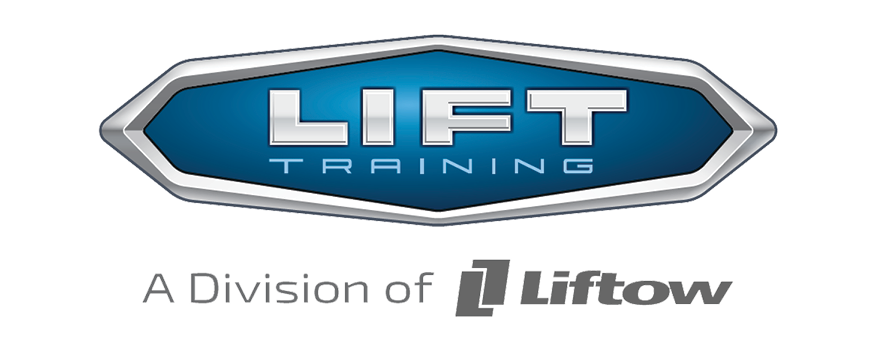
In today’s fast-paced work environment, safety remains a top priority, especially when it comes to operating powered industrial trucks. These powerful machines are crucial in many industries, from warehousing to manufacturing, but they also come with inherent risks. As companies strive to improve safety standards, online training for powered industrial trucks has emerged as an essential tool.
Online training provides a flexible and comprehensive approach to learning, allowing employees to gain necessary skills without compromising their work schedules. For companies across Canada, this method can lead to significant cost savings while boosting employee efficiency and safety. By embracing online training, businesses can ensure their operators are well-prepared to handle the challenges of operating these complex vehicles.
Online courses offer an up-to-date and consistent curriculum, ensuring that all employees receive the same level of education. This uniformity is crucial for maintaining high safety standards and adhering to regulatory requirements.
With the right online training program, companies can foster a culture of safety and competence, reducing the likelihood of accidents and improving overall workplace morale.
Importance of Online Training for Powered Industrial Trucks
Online training for powered industrial trucks is essential for several reasons. First and foremost, it provides employees with the knowledge and skills necessary to operate these vehicles safely. When employees receive consistent and thorough training, they are better equipped to recognise hazards and respond appropriately to potential risks.
Online training also offers flexibility, allowing employees to learn at their own pace and on their own schedule. This flexibility is especially beneficial for businesses with varying shift patterns or remote operations, as it eliminates the need for in-person classes and travel. Employees can access training materials from anywhere, making it easier to fit learning into their busy lives.
Another significant benefit of online training is cost savings. Traditional in-person training often requires hiring certified instructors, renting spaces, and potentially paying for travel expenses. Online training eliminates these costs, making it a more economical choice for businesses.
Additionally, companies can avoid the loss of productivity associated with taking employees away from their work to attend training sessions.
Key Components of Effective Online Training Programs
Creating an effective online training program for powered industrial trucks involves several key components. Here are some crucial elements that make an online training program successful:
1. Comprehensive Content: An effective training program should cover all necessary topics, including equipment operation, safety procedures, hazard recognition, and emergency response. The content should be detailed yet easy to understand.
2. Interactive Modules: Engaging training materials such as videos, simulations, and quizzes can enhance learning. Interactive modules keep employees engaged and make complex information easier to digest.
3. Accessibility: The training platform should be user-friendly and accessible from various devices such as computers, tablets, and smartphones. This ensures that employees can complete training from any location and at any time.
4. Assessments and Feedback: Regular assessments help gauge understanding and retention of the material. Providing immediate feedback on quizzes and tests can guide employees in areas where they need improvement.
5. Certification: Upon completion of the course, employees should receive a certificate that verifies their competency. This not only motivates employees but also provides businesses with proof of compliance.
How to Choose the Right Online Training Provider
Selecting the right online training provider for powered industrial trucks is critical for ensuring effective and compliant training. Here are some guidelines to consider:
1. Accreditation: Ensure the training provider is accredited and recognised by relevant regulatory bodies. This ensures that the training meets industry standards and will be accepted for compliance purposes.
2. Content Quality: Evaluate the quality of the training content. Look for comprehensive, accurate, and well-structured materials that cover all necessary aspects of powered industrial truck operation and safety.
3. User Reviews: Check reviews and testimonials from other businesses that have used the provider’s training programs. Positive feedback from other companies can be a good indicator of the provider’s reliability and effectiveness.
4. Technical Support: A good training provider should offer robust technical support to assist employees with any issues they might encounter during the training. This support can ensure a smooth and uninterrupted learning experience.
5. Cost-Effectiveness: Compare the costs of different providers to ensure you are getting good value for money. While cheaper options might seem attractive, it’s important to balance cost with the quality and comprehensiveness of the training program.
Certification and Compliance: What You Need to Know
Certification and compliance are crucial aspects of forklift operation in Canada. The certification process ensures that operators have received adequate training and demonstrated their competence in handling powered industrial trucks. This typically involves completing an accredited training program and passing an exam that tests both theoretical knowledge and practical skills.
Compliance with safety regulations is mandatory. Standards set by organisations such as the Canadian Centre for Occupational Health and Safety (CCOHS) help to protect employees and reduce workplace accidents. Failing to comply with these regulations can result in severe penalties for businesses, including fines and operational shutdowns.
Regularly updating certifications and participating in refresher courses help maintain high standards of safety and competence. Staying current with new regulations, technological advancements, and industry best practices is essential for ongoing compliance. By prioritising proper certification and compliance, companies can reduce risks, enhance safety, and foster a more productive work environment.
Importance of Online Training for Powered Industrial Trucks
Online training for powered industrial trucks holds immense significance for both employees and employers in Canada. Given the complexities and potential hazards associated with operating these vehicles, comprehensive training is a must. Online programs allow employees to access essential information and skill-building exercises at their convenience, making learning more accessible and adaptable to their schedules.
For companies, online training can lead to substantial financial benefits. Traditional in-person training can be costly, often requiring travel expenses, venue rentals, and instructor fees. By opting for online alternatives, these overhead costs are greatly reduced. Moreover, online training eliminates the need to take employees away from their workstations, avoiding disruptions in productivity.
Another major advantage of online training is its consistency. With every employee receiving the same standardised training, companies can ensure that all operators are equipped with the latest knowledge and best practices. This uniformity is crucial in maintaining high safety standards across all operations. Additionally, online training can be easily updated to reflect any changes in regulations or industry standards, keeping all content current and relevant.
Key Components of Effective Online Training Programs
Successful online training programs for powered industrial trucks incorporate several essential components that enhance both learning and retention. Below are the key elements that make an online training program effective:
1. Comprehensive Content: Effective training programs must cover all necessary aspects of forklift operation, including safety procedures, equipment handling, and hazard recognition. The information should be easy to understand and broken down into manageable sections.
2. Interactive Modules: Interactive elements, such as videos, simulations, and quizzes, keep learners engaged. These tools make complex information more digestible and help reinforce key concepts through active participation.
3. Accessibility: The training platform should be user-friendly and accessible on various devices, including computers, tablets, and smartphones. This flexibility ensures that employees can complete their training from any location and at their own pace.
4. Assessments and Feedback: Regular quizzes and tests help gauge the learners’ understanding of the material. Immediate feedback on these assessments can guide employees in areas that need improvement, ensuring a thorough grasp of essential concepts.
5. Certification: Upon successful completion of the course, employees should receive a certificate indicating their proficiency. This motivates employees and provides companies with documented proof of training for compliance purposes.
6. Support and Resources: An effective training program should offer additional resources, such as downloadable guides or access to support staff, to help learners with any questions or issues they may encounter during the course.
By incorporating these elements, online training programs ensure that employees are well-prepared to safely and efficiently operate powered industrial trucks, ultimately leading to a safer and more productive workplace.
How to Choose the Right Online Training Provider
Choosing the right online training provider for powered industrial trucks is crucial. There are several factors to consider to ensure that the training program meets your specific needs and helps your employees stay safe and compliant. First, make sure the provider offers accredited courses. Accredited courses ensure that the training content meets industry standards and regulations. Look for providers that hold certifications from recognised bodies.
Next, consider the flexibility of the courses. Online training should be accessible and allow employees to learn at their own pace. Check if the provider offers mobile-friendly courses so that employees can train from any location. Flexibility in scheduling is also important, especially for companies that operate around the clock.
Evaluate the quality of the training material. The courses should be interactive and engaging, offering a mix of videos, quizzes, and real-life scenarios. High-quality content helps employees retain information better. Additionally, make sure the provider offers robust support. Having access to trainers or customer service can make a significant difference in the learning experience.
Finally, look at reviews and testimonials. Feedback from other companies can provide insights into the effectiveness and reliability of the training provider. By considering these factors, you can select a provider that delivers high-quality training and supports your company’s safety and compliance goals.
Certification and Compliance: What You Need to Know
Certification and compliance play a vital role in workplace safety. In Canada, employers must ensure that their employees are certified to operate powered industrial trucks. Certification involves completing a training program and passing an assessment. This process confirms that the operator understands the equipment, knows safety procedures, and can operate the truck correctly.
Maintaining compliance with safety regulations is essential to avoid penalties and ensure a safe working environment. Regulatory bodies like the Canadian Centre for Occupational Health and Safety (CCOHS) set the standards for training and certification. Your company must adhere to these standards to stay compliant and protect employees.
A certification management system can simplify the process of tracking and maintaining employee certifications. This system alerts you when certifications are about to expire, ensuring that employees complete refresher courses on time. Automated tracking also helps you provide proof of compliance during audits.
Staying updated with changes in regulations is crucial as well. The safety landscape evolves, and new guidelines may come into effect. Regularly reviewing and updating training programs ensures that they align with the latest standards. This proactive approach promotes a culture of continuous improvement and safety in the workplace.
Unlocking Success with Online Training for Powered Industrial Trucks
Developing an effective safety training program for powered industrial trucks requires careful planning and execution. By choosing the right training provider, ensuring certification, and maintaining compliance, companies can create a safer work environment and avoid potential penalties. Online training offers flexibility and accessibility, making it easier for employees to stay updated with the latest safety standards.
At LIFT Training, we understand the importance of comprehensive and engaging training programs. Our state-of-the-art certification management solutions in Ontario help you track certifications and ensure compliance effortlessly. Explore LIFT Training’s training offerings today to boost workplace safety and productivity.
